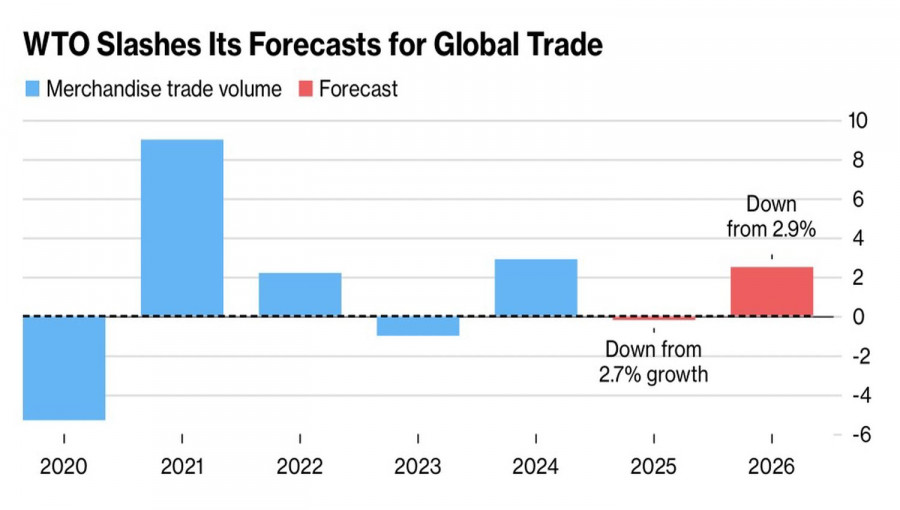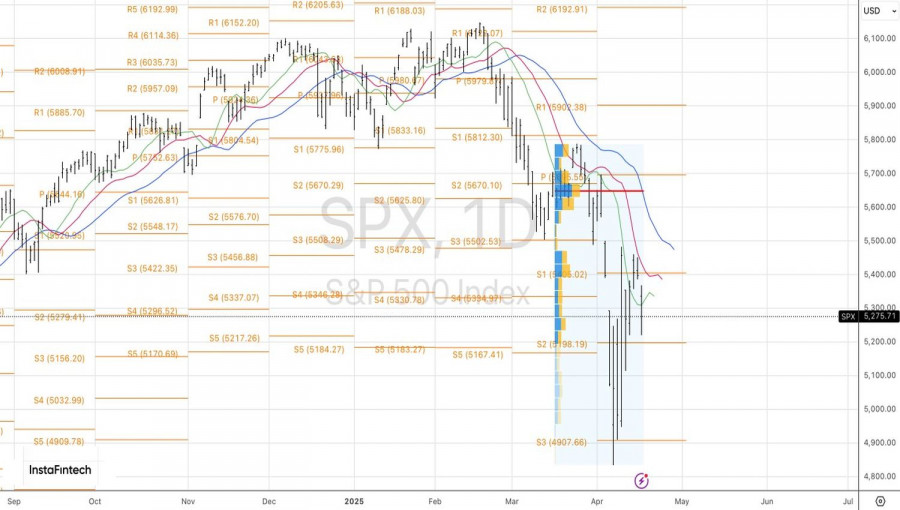

If you believe a recession is looming, the rule is simple: sell first, ask questions later. When the National Bureau of Economic Research officially declared a recession in the United States in December 2008, the S&P 500 plunged, marking a historic moment. Now, the era of calm in US equities is firmly in the rearview mirror, giving way to constant turbulence. Investors need to adjust to a new reality.
In 2024, the S&P 500 hit dozens of record highs and avoided single-day declines of 2% or more, making it the best year for bulls since 2007. What came next is etched in the market's memory. Today, the odds of a US recession are rising rapidly.
US recession probability
The calm of recent years has been shattered by Donald Trump's trade policies. According to Fed Chairman Jerome Powell, markets are simply doing what they are supposed to do: reacting to the biggest tariff hike since the 1930s. The result will be rising inflation, higher unemployment, and a central bank torn between its dual mandates. With key economic indicators pulling in opposite directions, the Fed faces a new storm.
Powell's remark that monetary policy is currently "in the right place" convinced investors that the Fed is not throwing out a lifeline. Neither is the White House. And if that is the case, the S&P 500 could be headed right back into bear territory.
After all, the trade war is just getting started and its effects could be long-lasting. The US government's demand that NVIDIA obtain a license to sell chips to China triggered a sell-off in the tech giant's stock. Markets immediately priced in a revenue slowdown. Meanwhile, Beijing hit back with restrictions on Boeing aircraft purchases and laid out conditions for returning to the negotiating table.
Bad news for the S&P 500 is coming from all directions. The World Trade Organization slashed its 2025 global trade growth forecast by 0.2%, a far cry from the 2.7% it predicted before Washington's Independence Day tariffs. And this could be just the beginning. If the US goes further, trade could shrink by as much as 1.5%.
International trade dynamics


Supply chain disruptions are bad for business. So is uncertainty. And what is bad for business is dreadful for the economy. Is a recession closer than it seems?
Technically, on the daily chart, the failure of bulls to hold the critical 5,400 pivot has exposed weakness and triggered selling. A break below the 5,225 and 5,200 support levels would pave the way for adding to existing short positions. A return to buying only makes sense if the broader equity benchmark can rise above 5,400 or, better yet, 5,455.

QUICK LINKS